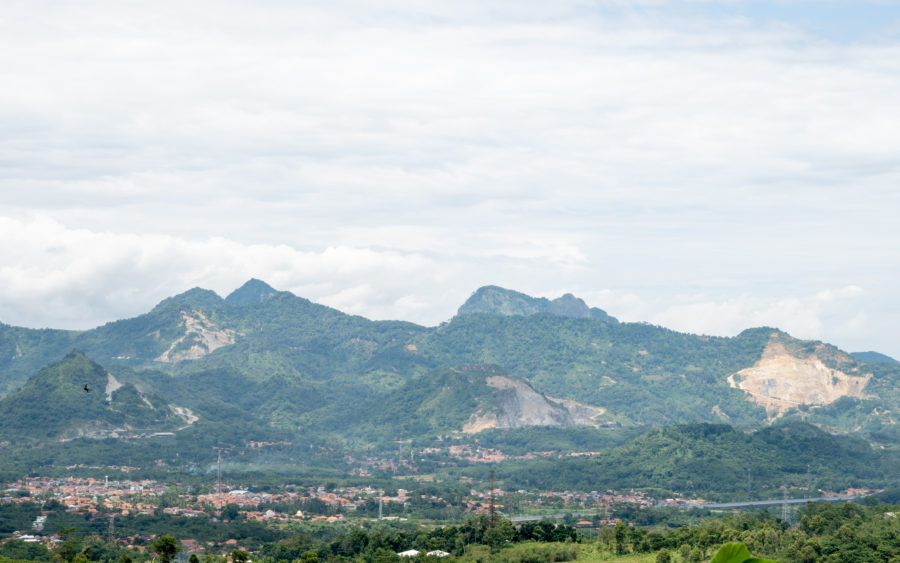Indonesian mining – attractive, not always easy
The Tujuh Bukit project reflects both the attractions and difficulties facing foreign companies working in Indonesia’s mining sector.
Situated on the southeastern tip of Java, Tujuh Bukit is large, with the potential to produce annually at least 300,000 ounces of gold, 1 million ounces of silver and 100,000 tonnes of copper.
Phase 1 mining will be open cut, to produce gold and silver. Construction is to commence by mid-2016. Phase 2 mining will be underground, to produce copper and gold.
Tenders for the Phase 1 processing plant (to include crushing, grinding and heap leaching) have been invited from three companies: FLSmidth (a global company with its head office in Denmark); Como Engineers of Australia; and PT Contromation Energi Services of Indonesia.
The project offers considerable opportunities for local and foreign suppliers, consultants and contractors.
But it has a chequered history.
Between 1991 and 2007, exploration of the area was undertaken by an Indonesian company in conjunction with several different foreign companies.
Responsibility for the project was taken over by Australian company, Intrepid Mines, in 2007. However, the tenements concerned were controlled by an Indonesian company, PT IMN. Following a change of ownership in 2012, PT IMN suspended exploration activities at Tujuh Bukit and Intrepid Mines was evicted from the site.
Intrepid Mines pursued several legal and administrative avenues to regain control of the site; these were unsuccessful and the company reached a settlement with the owners of the project in 2014.
Tujuh Bukit is now in the hands of the Indonesian company, PT Merdeka Copper Gold. Intrepid Mines is pursuing a copper project in Zambia.
Indonesia is the world’s largest exporter of thermal coal (used for electricity production); a major world producer of tin and nickel; and the location of one of the world’s largest copper mines, Grasberg.
Reflecting its resource strength, the country is a major drawcard for foreign mining and mining-service companies. For example, Australian mining-service companies have a greater presence in Indonesia than in any other country outside Australia.
Indonesia’s attractiveness is likely to continue, notwithstanding the difficulties faced by Intrepid Mines and some other mining companies there.
And notwithstanding policy changes that are sometimes unwelcome, such as the recent tightening of requirements for Indonesian ownership of mines and the recent introduction of the requirement that nickel, copper and most other mineral products be processed before being exported.
More News
{{ commodity.name }}
{{ post.title }}
{{ post.date }}





Comments